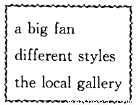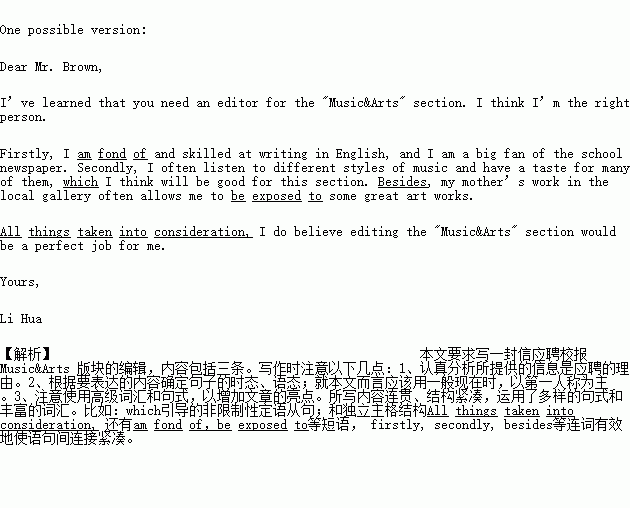ĖâÄŋÄÚČÝ
žŲČįÄãĘĮĀîŧŠĢŽĩÃÖŠŅ§ÐĢÓĒÎÄąĻÕýÔÚÕÐÆļ"Music&ArtsĄą°æŋéĩÄąāžĢŽĮëļøļšÔðČËMr.BrownÐīŌŧ·âÓĒÎÄÐÅžþĢŽŌŠĩãČįÏÂ:
1.ĘĮļÃąĻĩÄÖŌĘĩķÁÕßĢŽēĒÉÃģĪÓĒÎÄÐīŨũ;
2.ģĢĖýēŧÍŽ·įļņĩÄŌôĀÖĢŽķÔŌôĀÖÓÐŨÔžšĩÄĀí―â;
3.ÄļĮŨÔÚÃĀĘõđÝđĪŨũĢŽģĢÓÐŧúŧá―ÓīĨĩ―ŌÕĘõŨũÆ·ĄĢ
ŨĒŌâ:
1.īĘĘý:80Ōŧ100īĘ;
2.ŋÉĘĘĩąÔöžÓÏļ―ÚĢŽĘđÐÐÎÄÁŽđá;
3ŋŠÍ·šÍ―áÎēŌŅļøģöĢŽēŧžÆČëŨÜīĘĘýĄĢ

Dear Mr. Brown,
IĄŊve learned that you need an editor for the "Music&Arts" section.
Yours
Li Hua
Á·Ï°ēáÏĩÁÐīð°ļ
ÏāđØĖâÄŋ


